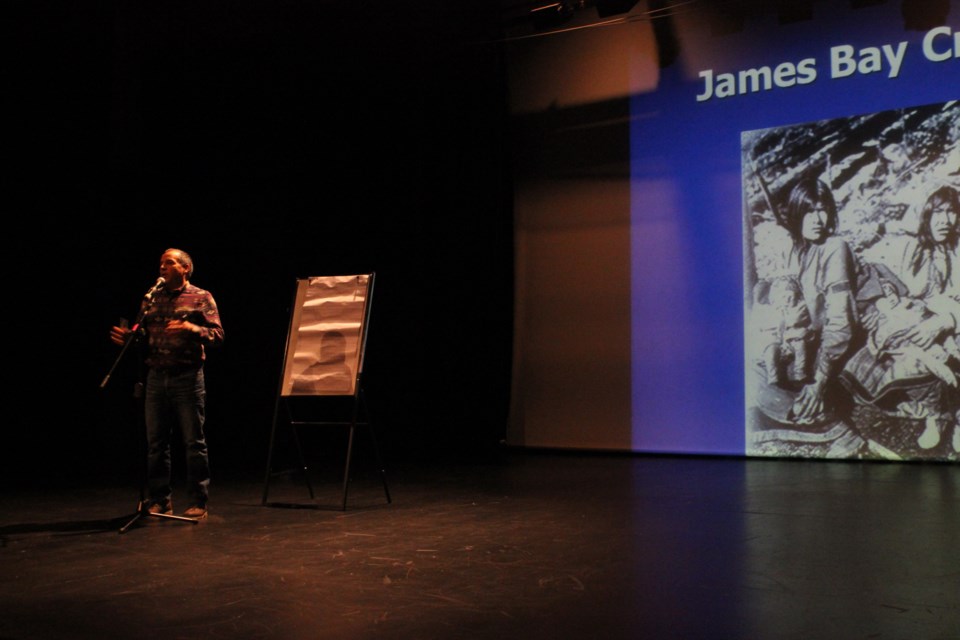An important part of celebrating native culture in North Bay is learning the history.
As part of the Truth and Reconciliation sessions, Chief Scott McLeod and George Couchie of Nipissing First Nation hosted the information session Wednesday night talking about the history of the First Nations and encouraging its celebration.
“It’s almost like an iceberg,” Couchie said about the general perception of Native culture. “We see aboriginal people in powwows and on the news, but there is really so much more, as history teaches us why some of the communities are so dysfunctional.”
He said a lot of the challenges, oppressions, and assimilations faced by the First Nations have made cultural pride and history difficult for people to acknowledge, especially for younger generations who grow up not feeling like they belong or not understanding their own culture and heritage.
“I always say my grandfather was an angry man, my father was an angry man and I needed to really change who I was going to be so learning about my own brokenness before I could talk to somebody else and this was part of our journey,” Couchie said. “History started when Champlain and Carter got here, but there was always a strong history here prior to that and really when I talk to Aboriginal kids, you have to be proud of who you are and have a passion, because when you lose your passions that’s where you see a lot of suicides in aboriginal kids. It’s about teaching the kids.”
McLeod said that even today, treaties between the First Nations and Canada are strained, with effects from the Indian Act still negatively affecting the cultures. Couchie said that the law oppressed Native culture so much that other governments—South Africa in particular—came to Canada to learn how to use similar laws in its apartheid.
Both he and Couchie said the Nipissing First Nation, having been here for thousands of years, was always known as a fishing and trade community, but these laws implemented by the government made it difficult for their people to express their identities.
“We were suppressed and marginalized from the fishery,” McLeod said about Lake Nipissing. He said up until the 1990s, Nipissing was considered a world-class fishing location, with commercial and recreational fishing dominating the area.
“They used pound nets and fished predominantly white fish, sturgeon and you can imagine walleye were also taken out of there,” he said. “When I worked for the ministry, I got to go through the archives and there are pictures of the fishery at the turn of the century. A lot of those fish were considered a nuisance so what they’d do is dry them out, and because they had a high content oil, they were used as fuel for the furnaces in the mills. There are pictures of stacks and stacks of the fish being lined up and ready to burn.”
But times are changing and Couchie said he was optimistic moving forward, seeing people come together. Following the session, he said although we had come a long way as a collection of cultures over the many years since the first European colonies, there was still a long way to go.
“We’re bringing people together and enjoying learning about people who are next door neighbours,” he said, mentioning how tensions may have been high in the ‘90’s, but have simmered down now.
And with the recent ice hut controversy, Couchie took a positive stance.
“It’s a positive thing,” he said. “Because in one way it reminds us we still have work to do but that’s just a small fraction of people who talk like that. We’ve become a better society I think.”
With the second session done, the third session will explore the history behind residential school—with talks from a residential school survivor—as well as a smudge/circle and healing song taking place next Wednesday from 7 – 9 p.m. at St. Joseph-Scollard Hall.
And the final session will be a celebration/feast at Nibissing Secondary School on February 22 from 6 – 9 p.m., with a smudge, potluck/social, grandfather drum, cultural information on celebrations, role models, and round dance.



